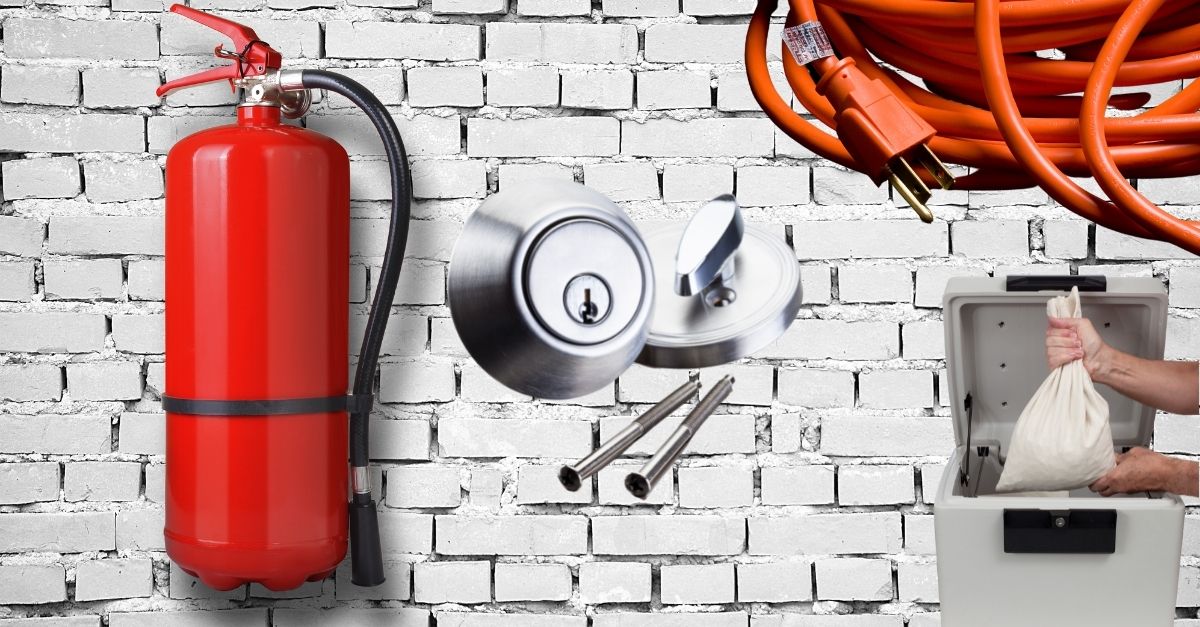Top 8 Things New Homeowners Need
 Moving into your first home is an exciting experience, but it can also be overwhelming. To manage the move properly, you need a wide variety of tools you may never have considered before. You may not realize you should have purchased a certain item until you need it.
Moving into your first home is an exciting experience, but it can also be overwhelming. To manage the move properly, you need a wide variety of tools you may never have considered before. You may not realize you should have purchased a certain item until you need it.
To prepare for the move into your new home, make sure you have all of the items listed below.
Storage For Documents
As a homeowner, you will need to keep and organize a variety of documents, including receipts, warranties and even your mortgage papers. Consider buying a fireproof box or cabinet to store these items.
Fire Extinguisher
Every homeowner should have at least one fire extinguisher on hand. Make sure your fire extinguisher is stored in a location that can be accessed easily in the event of a fire.
Extension Cords
Extension cords can be useful in a variety of situations, from plugging in appliances that are too far from an outlet to decorating your home for the holidays. Be sure to buy multiple cords in different lengths so you can use them for different purposes.
Smoke Alarms
If your home is not already equipped with working smoke alarms, you need to purchase and install them as soon as possible. Be sure that you check your alarms every four months and change the batteries as needed.
Cleaning Supplies
Another important purchase for every new homeowner is cleaning supplies. While some of these supplies may be used on a daily basis, others may be used less frequently. Nonetheless, it is a smart to have all of these items on hand. Examples of cleaning supplies you may need include window cleaner, toilet brushes, brooms, mops, sponges and paper towels. If you have carpet in your new home, you may need to buy a vacuum cleaner as well
A Basic Tool Kit
Every new homeowner will need some basic tools. Purchasing these tools in advance will make both small and large tasks easier. Be sure your toolkit includes a utility knife, flashlight, measuring tape, screwdrivers, wrenches and hammers. Having some different kinds of tape on hand is also a wise idea.
Exterior Door Locks
When moving into a new home, it is always a good idea to change the locks. Although the previous owner is asked to turn over all the keys to the home, it is impossible to know whether other keys exist. Buying your own door locks will protect against break-ins and give you peace of mind.
Lawn Equipment
If you will be responsible for maintaining your own lawn and landscaping, you will need to invest in the proper lawn maintenance equipment. Examples of items you may need include snow shovels, sprinklers, rakes, shears, shovels and water hoses. You may also need a lawnmower.
You may still need to make additional purchases after you have everything on this list. However, this list covers many of the basic things you will need to begin life successfully in your new home.
 Becoming a homeowner for the first time is exciting. However, for many potential buyers, the process can also be confusing. Below is an overview of the steps you need to complete in order to buy your first home.
Becoming a homeowner for the first time is exciting. However, for many potential buyers, the process can also be confusing. Below is an overview of the steps you need to complete in order to buy your first home.  Home buying is often made possible or unreachable due to the local and national economy. Fortunately, what goes up, must come down. So, for buyers who can wait, economic changes in supply and demand can create opportunities. These shifts in real estate are known as buyer’s markets and seller’s markets.
Home buying is often made possible or unreachable due to the local and national economy. Fortunately, what goes up, must come down. So, for buyers who can wait, economic changes in supply and demand can create opportunities. These shifts in real estate are known as buyer’s markets and seller’s markets.